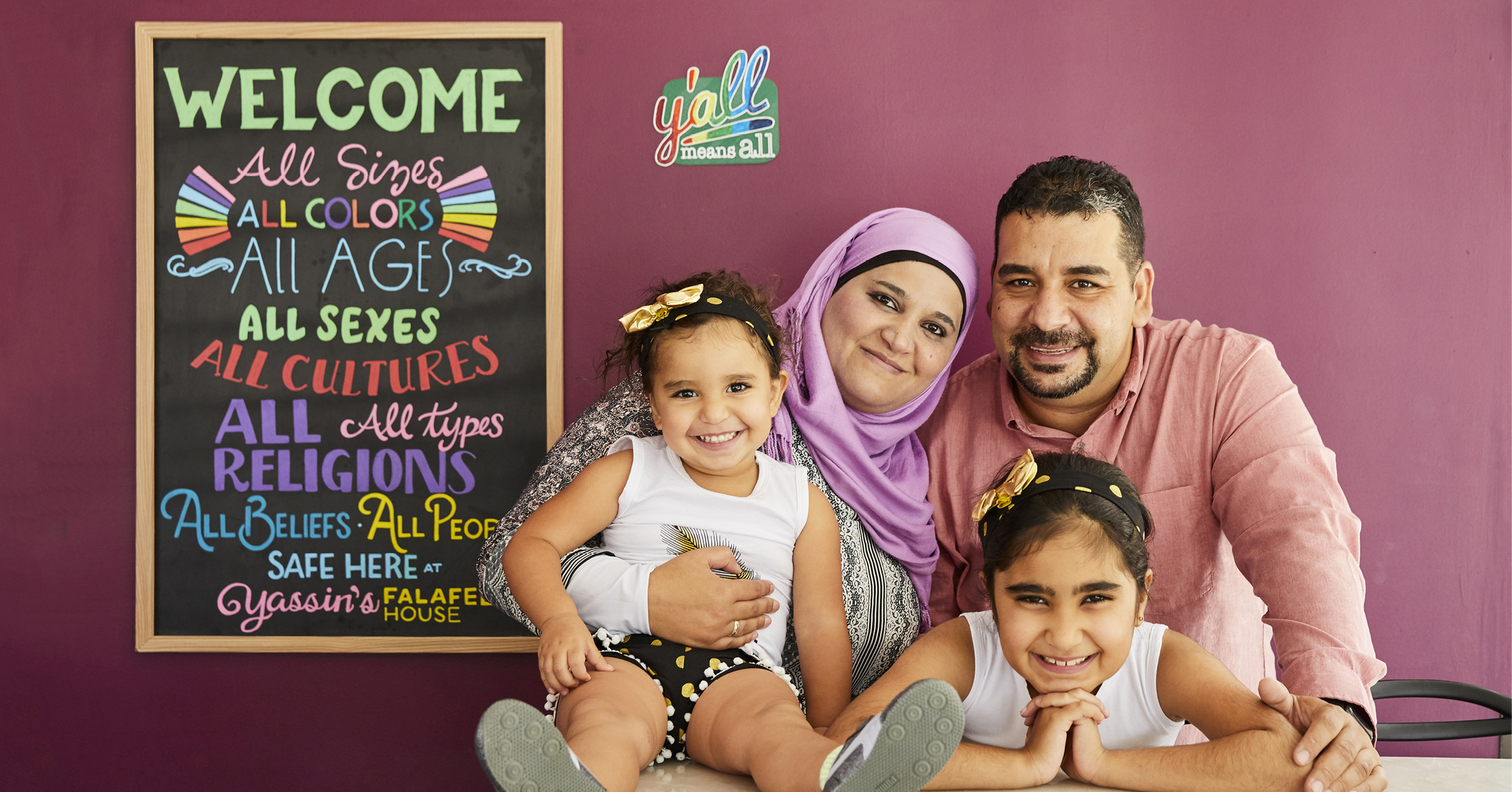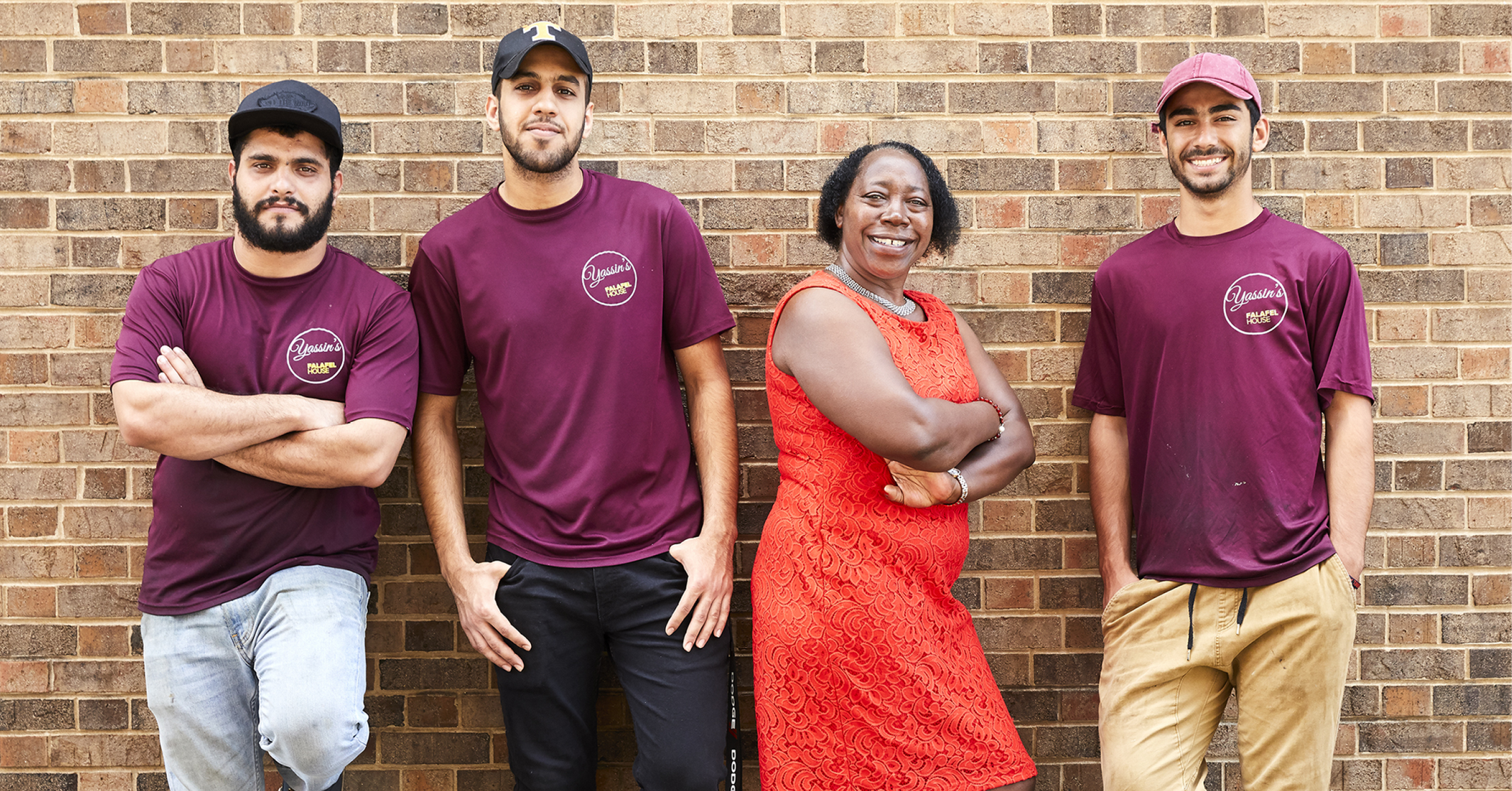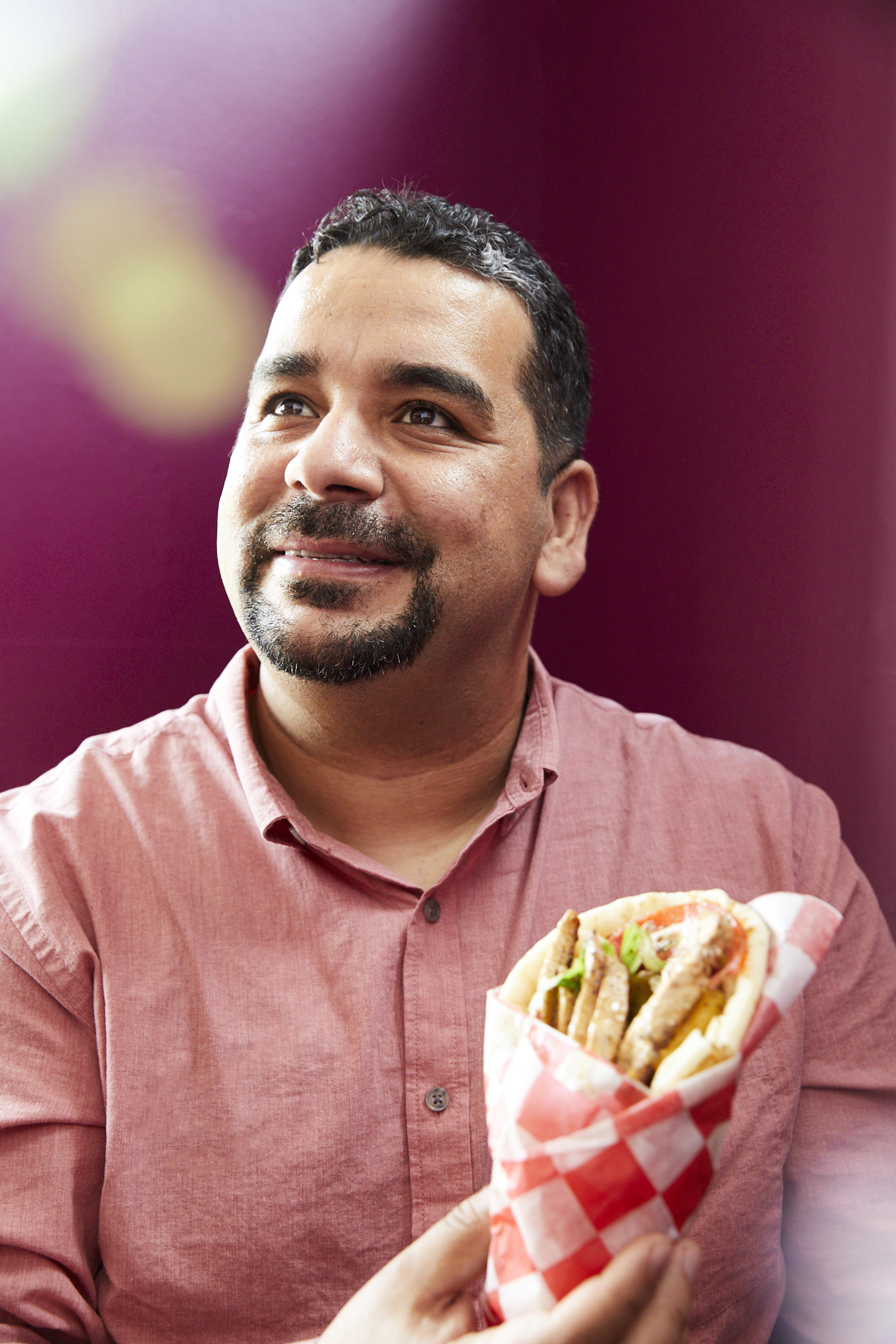
- Inspiring People -
- 4mins -
- 267 views
How Did This Small Falafel Shop in Tennessee Become the ‘Nicest Place in America’?
Yassin Terou is a Syrian refugee who arrived in the US seven years ago and opened Yassin’s Falafel House in Knoxville, Tennessee—voted Reader’s Digest’s “Nicest Place in America” 2018.
Tennessee falafel shop chosen as the “nicest place in America.”
Last year, Reader’s Digest asked people what’s the nicest place in America. The winning answer came as a surprise. All too often our news feeds are filled with stories of division, prejudice and heartache. So, it was a welcome surprise that a little falafel shop in Knoxville, Tennessee was just named as the “nicest place” in the United States.
“I’m not here just to make falafel and make money, I’m here to build this community.”
Yassin Terou is the owner and operator of Yassin’s Falafel House, which employs 30 people and has been open for the past four years. Terou is a refugee, an immigrant, and a Muslim.
There are some places in the world where strangers aren’t welcomed, especially if they don’t look, talk, or worship like everyone else. But that’s not Knoxville, where Terou has been given a shot at the American dream.
His restaurants are safe places for everyone, powerful engines of charity, and symbols of the best of America. That’s why Yassin’s Falafel House was voted last year’s Nicest Place in America.
“I’m not here just to make falafel and make money,” Terou told Reader’s Digest. “I’m here to build this community.”
Terou is likely the first immigrant, refugee, or Muslim that many of his customers and fellow Knoxvillians have met—yet he embodies their closely held belief that all people are created equal and deserve a basic level of dignity and respect.
He is also a reminder that these values aren’t good because they come from Knoxville; good people everywhere hold them.
At the downtown location, folks have made Yassin’s one of the most popular places to eat, and it isn’t just because of the deliciously fried chickpea balls served on a pita.
Terou supports his customers and many of the causes important to them. In West Knoxville, which is more conservative than the city center, the store is even more popular and profitable.
Why? It all comes down to Terou’s message, which is perfectly captured in the sign outside of each Yassin’s locations:

Terou now sees it as his mission to give back to a place that has given so much to him
“It’s my job to help people,” he says. “That’s how we can keep being nice and transfer love to our kids and our grandkids. If someone helps me, I don’t want to be the last one who has been helped.”
Terou, who now employs 30 people at his two locations, has also hired ex-convicts, people struggling with drug addiction, and women fleeing dangerous situations. The local YWCA, which provides shelter for 58 women who are overcoming addiction and other difficult situations, is right across the street. One of the biggest obstacles to recovery and independence is having a job that provides dignity and an income.
“Yassin’s has been an employer for many of our residents,” Karlyn Reel, director of public relations at the YWCA, told Reader’s Digest. “Terou’s willingness to hire those who have had different challenges is definitely appealing to us.”
Source: ReadersDigest

The Heart of Knoxville
Terou and his staff share a “pay-it-forward” attitude so the Falafel House a hub for charitable works. In November 2016, fires ripped through the Smoky Mountain town of Gatlinburg, killing 14 and damaging or destroying 2,500 homes and businesses.
The night of the worst suffering, Terou couldn’t sleep, worrying for the people of Gatlinburg, just an hour away. He stayed up until past midnight, texting with friends in the community about what to do.
The next day, he rented a huge moving van and put the call out to his customers and friends to bring supplies to help the victims of the fire. By the early afternoon, the truck was loaded with water, food, and other essentials.
Yassin’s Falafel House has also held fundraisers for community causes, donating a percentage of the profits of each falafel sold. When fundraising for Bridge Refugee Services, the line was out the door and around the block; Yassin’s ran out of pita but didn’t stop selling food for the cause until everyone had been served.
When he won a local Rotary Club Peace Award in May 2018 for his charitable work, he donated the $1,000 prize to the Seeds of Abraham, a local nonprofit that brings together youth from different faiths to build connections that lead to understanding and peace.
In fact, Terou has been “paying-it-forward” ever since he arrived in Knoxville.
Source: ReadersDigest


